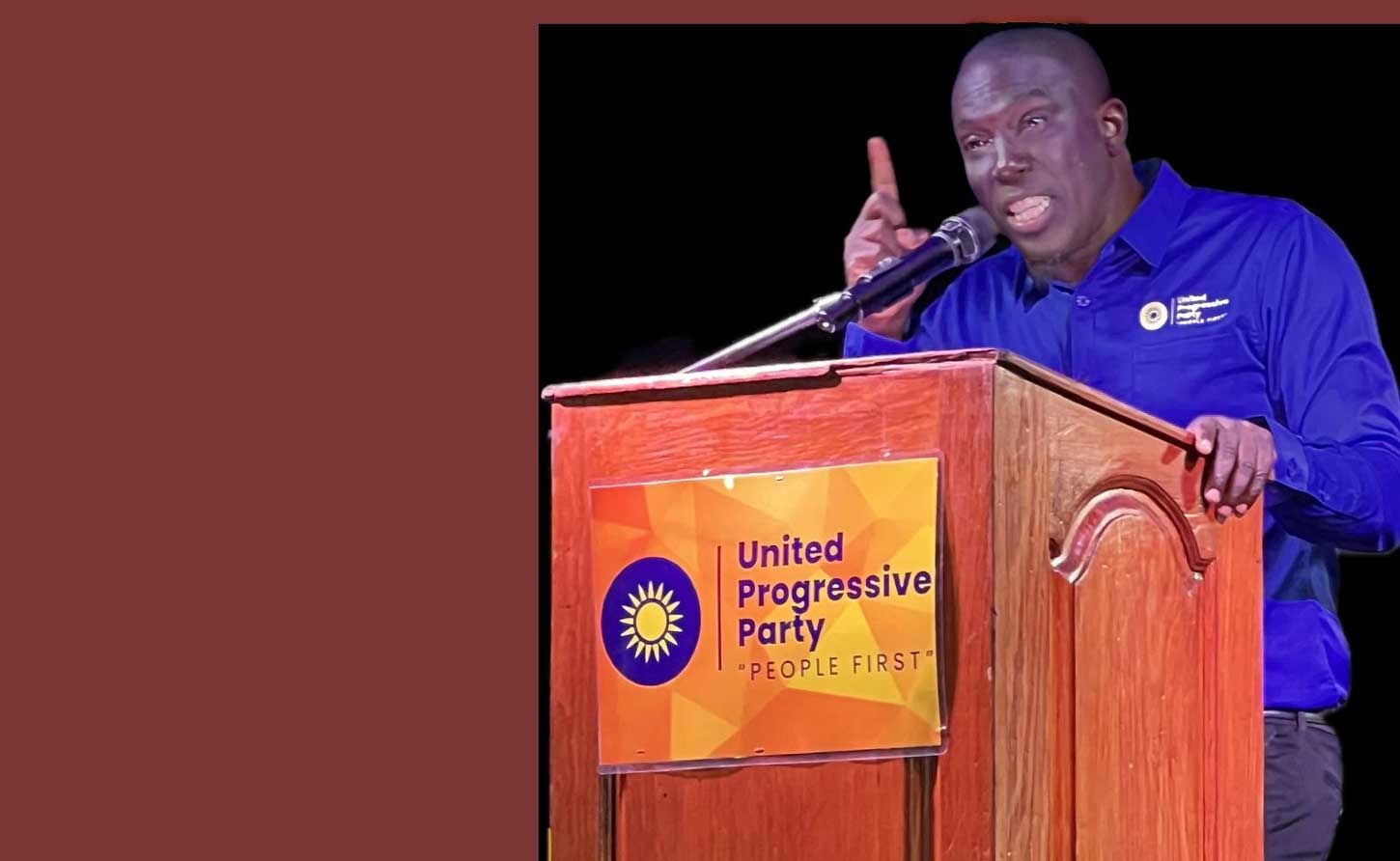ANTIGUA | UPP Leader Demands Accountability: A Scathing Critique of Government Performance

ST. JOHN'S Antigua, October 10, 2024 - In a blistering address that laid bare the failings of the Gaston Browne Administration, leader of the United Progressive Party (UPP), and Opposition Leader Hon. Jamale Pringle, delivered a comprehensive indictment of the government's performance in Public Works and Utilities. Pringle's critique, spanning the last 19 months of governance, painted a picture of a nation grappling with infrastructure decay and utility mismanagement.
With the precision of a seasoned prosecutor, Pringle began his dissection with the sorry state of the nation's roads. "Our streets have become an obstacle course of potholes, ruts, and overgrown vegetation," he declared, his words echoing the frustration of countless commuters. The UPP leader questioned Minister Maria Browne's awareness of these conditions, pointedly asking, "Does the Minister even see what we see?"
Pringle's critique was not confined to generalities. He meticulously cataloged specific failures, from the incomplete Sir Sidney Walling Highway – a project supported by UK Government grants yet still floundering – to the flood-prone Sir George Walter Highway, a waterlogged reminder of promises unfulfilled. Even Rural East, the Minister's own constituency, has not been spared the blight of deterioration, a fact Pringle highlighted with barely concealed disdain.
The opposition leader's scathing review extended beyond roads to encompass the deplorable state of public buildings. Despite increased tax revenue and port fees, Pringle pointed out a litany of closed or partially functioning facilities: courts operating at half-mast, police stations in disrepair, a post office struggling to deliver on its basic mandate, and community clinics unable to serve those most in need.
Turning his attention to utilities, Pringle painted a picture of a nation held hostage by unreliable services and broken promises. The government's pledge of affordable air-conditioning units had evaporated like a mirage in the Caribbean heat, leaving citizens to grapple with exorbitant electricity bills. "They promised cool comfort," Pringle quipped, "but delivered only the heat of financial burden."
The UPP leader didn't mince words when addressing the elephant in the room – frequent power outages that plunge homes and businesses into darkness with alarming regularity. He questioned the government's commitment to a "green" economy, pointing out the glaring absence of battery storage at the much-touted Bethesda and Airport solar farms. "How can we power our future," he asked rhetorically, "when we can't even keep the lights on today?"
Water woes formed the next wave of Pringle's critique. With the conviction of a man who understands that access to clean water is a fundamental human right, he contrasted the government's grandiose claims about reverse osmosis plants with the harsh reality of water shortages. "They speak of abundance," Pringle declared, "while our people live under 'Water Watch', rationing every precious drop." The irony of water scarcity in a year of plentiful rainfall was not lost on the UPP leader, who demanded answers for this paradoxical predicament.
In a world increasingly dependent on digital connectivity, Pringle highlighted the government's failure to deliver on promises of improved internet infrastructure. High costs, sluggish speeds, and narrow bandwidths have not only frustrated citizens but also scuppered attempts to attract the coveted "Digital Nomads" – a missed opportunity in the post-COVID era of remote work. "In the race for digital supremacy," Pringle observed, "we're still stuck at the starting line, watching the world sprint ahead."
The UPP leader's comprehensive critique painted a damning picture of a government long on promises but short on delivery. From crumbling infrastructure to utilities in crisis, Pringle argued that the Browne Administration had failed to meet even the most basic needs of its citizens. "How can we trust them with our future," he questioned, "when they can't manage our present?"
In his concluding remarks, Pringle called for a new era of accountability in governance. He demanded transparency in public spending, regular progress reports on infrastructure projects, and a comprehensive plan to address the utility crisis. "The people of Antigua and Barbuda deserve better," Pringle thundered, his voice rising with conviction. "They deserve a government that works as hard as they do, that delivers on its promises, and that puts the needs of the many above the interests of the few."
As Pringle's words echoed through the hall, it was clear that he had thrown down the gauntlet. This wasn't just a critique of past failures, but a challenge for future action. The UPP leader had laid bare the shortcomings of the current administration, and in doing so, had presented his party as the alternative – a force ready to bring about the change and accountability that Antigua and Barbuda so desperately needs.
-30-
